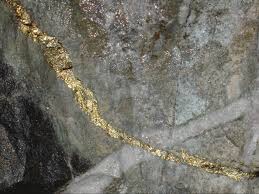
One of the hardest concepts to get across to my students in the Life Stories class that I taught this past winter, was the distinction between an anecdote and a story. An anecdote is a tale we tell to people we don’t know very well. It stays at the surface and focuses on the who, what, where and when like a newspaper report of something that happened to us. A story, on the other hand, contains all the elements of an anecdote, but it goes deeper into the meaning and impact of what happened within us in the context of an event. A story reveals how the protagonist changes internally as a result of what happened. It’s personal and it is usually reserved to be shared with people that we trust.
For me, the real value of writing life stories is not to simply record a chronicle of events, but to discover how I changed over time, to explore the alchemy of choice and chance on the direction of my life, to hold up the things that happened to me in the past and view them from the perspective of who I am now. I look for the lessons. The author, James Baldwin said, “The whole language of writing for me is finding out what you don’t want to know, what you don’t want to find out. But something forces you to anyway.”
I recently had an email from a former student. She was a good writer—clear, funny, articulate—but her work stayed at the level of anecdote. She’s someone you’d like to sit next to at lunch. She’d keep you entertained. I pushed her in class, often asking how she made sense of what happened in the tales of her past that she related. Once, I even boldly asked, “Where are you in that tale? I want to know who you were.” She wrote as though she were an observer of her life rather than a participant. Her anecdotes had the potential to be rich stories, if she stopped hiding.
Her recent email had the subject line “I got it!” She continued to write after class ended, encouraged by her daughters who wanted to read her stories of growing up as a female in the 60s. She wrote a couple of pages about her first serious romance making her beau sound like a jerk while she was the innocent victim to his charms and good looks. Her daughters read it and peppered her with questions. They weren’t buying it. Their interest brought her out of hiding, which my nudges in class failed to do. She re-wrote the piece, taking her time to remember—not just what happened—but who she was at the time. She allowed her foolish, vulnerable and naive voice to tell the story. She cut the boyfriend some slack and was honest about her sly motives. Her daughters loved it. They gathered on her patio one evening and they all shared stories of first loves—stories they’d never shared with each other before. Her email to me ended with “We tapped the mother lode—no pun intended!”
We take on and discard so many versions of self when we are growing up that it’s easy to forget who we were once upon a time. We tend to see those cast-off versions of ourselves as failures and subsequent models as evidence of progress. By the time we hit our 40s our self image hardens and we spend so much energy defending who we think we are, how we want to be seen. Aging provides an opportunity to take another look, to be kind to those earlier versions and realize that they were interesting characters and necessary means to the present. Writing about our past with honesty and compassion reveals how our values, beliefs, ideas and desires change over time. Writing about the lessons—what we had to let go of as well as take on—gives us permission to continue to change until our last breath. That feels hopeful to me.
I know that my obsession with mining life events for lessons isn’t appealing to everyone, but it made me happy to know that at least one student realized the value in digging for meaning in her life stories. Most of my students come to the class with the intention of sharing their life stories with family. Only a few are brave enough to expose their awkward younger selves, thinking that their children and grandchildren need to see them as the hero of their story—perfect end products. The mother lode exists in our imperfection, in our ability to relate as one evolving human to another. That level of candor connects generations.
